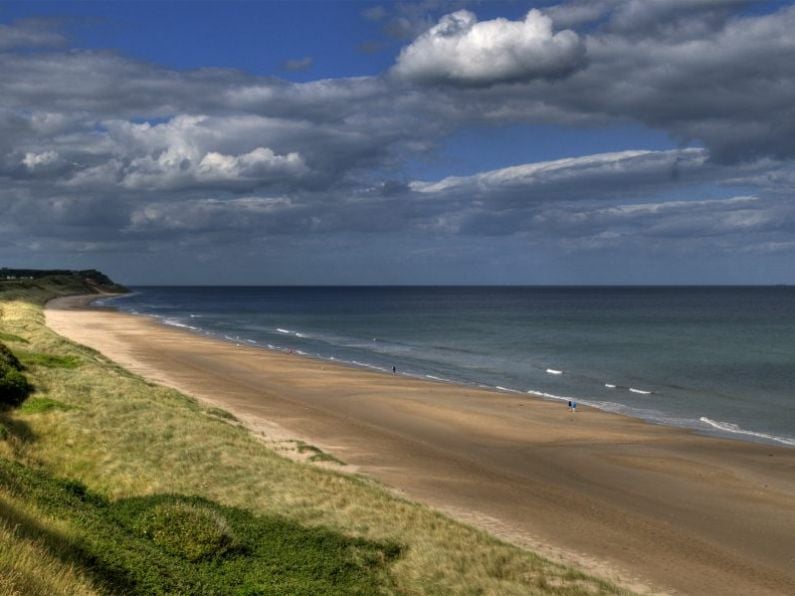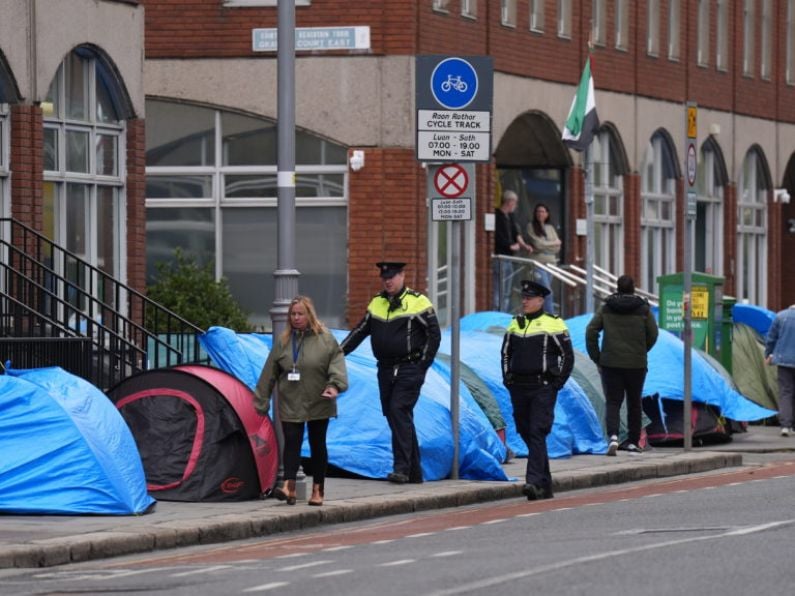By Joe Dermody
Most part-time restaurant workers will not return to work until the Covid-19 payments are finished, says one leading Cork restaurateur.
Canice Sharkey, owner of Isaacs Restaurant in Cork, says it is almost impossible to find anyone willing to spend a few hours cleaning the premises.
Canice Sharkey said: “We will have to reopen at some stage, but it will be very difficult trying to operate the business with the need for social distancing still in place. The morale of the staff will be very low, having to wear face masks at work.
“It will also be very difficult to get part-time staff to come back to do a few hours of work when they’re being paid over €300 a week to stay at home. They’ve gotten a taste of what life on the dole is like, where they’re being paid far more than if they came into work.
“Yesterday, I spent the day trying to find staff to come in and clean the premises. No one would do it. No one is coming back to work until after the Covid-19 payment is over.
“The payment was a knee-jerk response from the State. The 12-week payment period, that’s almost a quarter of the year, has given people a false sense of security. I hope that Revenue plans to claw that back.”
On a personal level, Mr Sharkey said he found it very difficult to shut his doors after 26 years of uninterrupted operations at Isaac’s on MacCurtain Street, Cork. Within two weeks of Covid-19, his turnover went from 100% to 10%, while the sector’s ongoing wrangling over insurance is adding to the stress.

Brody Sweeney of Camile Thai Kitchen chain, left; and Canice Sharkey of Isaacs Restaurant in Cork.
New restaurant coalition
Mr Sharkey is not alone in his concerns regarding the future of the restaurant sector in Ireland. He is part of the ‘Save Our Restaurants Coalition’ (SORC), a nationwide group of hospitality sector leaders who have issued a two-year plan advising the Government on how to protect more than 80,000 workers within the sector.
The coalition includes celebrity chefs Dylan McGrath and Kevin Dundon, among others. The group is proposing a continuation of the C19 payment subsidy for two years on a tiered basis, larger subsidies for those restaurants struggling most.
It proposes the C19 payment continues in its current format where turnover is down 80-100% on 2019 figures; the subsidy would fall to 70% where turnover is down 50-80%; and a 50% subsidy where turnover is down 25-50%. All subsidies to be reviewed by an independent 12-month audit.
The SORC also has proposals on the rescheduling of repayments on term loans, overdrafts, business mortgages, as well as finance leases and hire purchases. It suggests a rent subsidy, a corporation tax rebate, a deferral of VAT and P30 payments for two years, repaid over one year. It also proposes a diversification fund to help restaurants move into delivery and takeaway. The extensive two-year plan has other facets. The SORC is not the only group with a proposal for this sector.
The Restaurants Association of Ireland has also issued proposals, with similar ideas on a VAT freeze plus other financial supports to stimulate a return to work, along with provision of personal protective equipment (PPE) such as face masks, hair nets, disposable gloves, clean overalls and slip reduction work shoes for staff.
The SORC group’s steering committee includes accountants and solicitors. It also includes Brody Sweeney of the Camile Thai Kitchen chain, who doesn’t envy the Irish Government the choices it has to make.
“If you look at London, there are seven or eight different restaurant groups putting proposals to Government,” said Mr Sweeney. “In France, the Government has already intervened to support the sector. Denmark has subsidised rent for the sector.
“In normal times, there is no onus on the State to support private businesses in this way, but these are not normal times. We can see that our Government is doing an incredible job.
“Normally you’d expect to see a lot of backstabbing and point-scoring in politics. Instead we’re seeing politicians working to find solutions.
“The social costs of our sector failing to function are just unacceptable. It’s not just the 80,000 jobs, the thousands of mom and pop businesses are the fabric of life in towns and villages all over the country. Without them, you have nothing but barren streetscapes. Without these outlets, the towns become dead. Overseas visitors won’t come to Ireland.
“Just like the pubs, the restaurants are in real trouble. The Government knows that doing nothing carries a huge cost in terms of lost taxes, dole payments etc. The bigger issue is the social cost; we have to keep people in jobs, and keep the streets alive.”
Mr Sweeney says the State is looking at the proposals put forward by the various restaurant and hospitality groups, along with similar proposals from most other industry sectors. Governments across the world are doing likewise. The long-term implications for national debts globally are immense. And yet Governments the world over are making choices, sifting through proposals and rolling out plans.
“A lot of organisations are going to Government with their hands out,” said Brody Sweeney. “We are not going with demands. We have come up with an equitable plan. We are trying to help Government with a proposal that would see the money get to those who need it most.
“Our solution includes landlords taking a little pain, yet keeping most of the rent. Similarly, taking on further bank debt is not an option for restaurants.
“We are proposing the Government support the sector with direct grants towards fixed costs, and by directing the banks to deal with debt sensitively, as well as a continuation of the employment supports.”
It is worth noting that Brody Sweeney’s own business, Camile Thai Kitchen, is a takeaway and delivery chain. As such, his trade has been significantly less impacted by Covid-19 than sit-in restaurants.
“Restaurants and Cafes across the country have realised, that returning to normal will take a very long time,” said Mr Sweeney. “While our business has only partially been affected, the vast majority of restaurants, in every city, town and village in Ireland are closed, or doing very little business.
“With overseas tourism effectively stopped, social distancing measures having to be introduced and loyal customers nervous about coming back, it may take two years, or until a vaccine is developed — before we can expect normal trade to resume. Restaurants simply cant survive on 50% of their normal sales.”






